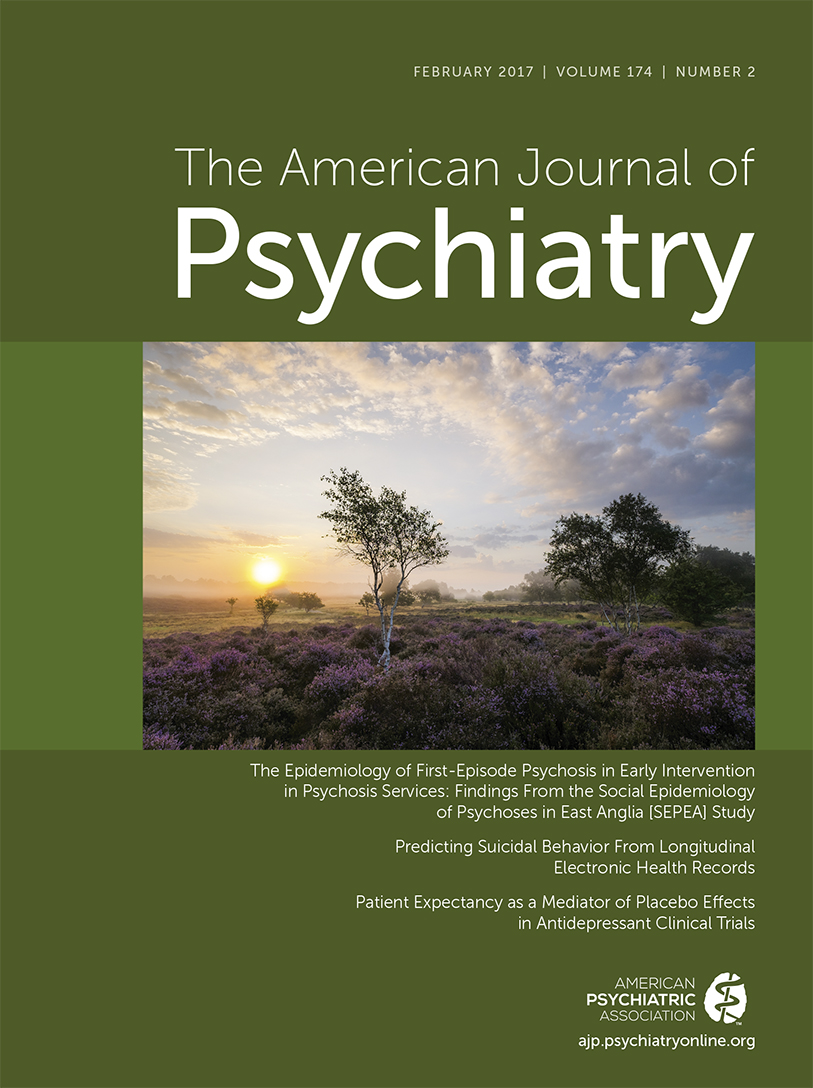Patient Expectancy as a Mediator of Placebo Effects in Antidepressant Clinical Trials
Abstract
Objective:
Causes of placebo effects in antidepressant trials have been inferred from observational studies and meta-analyses, but their mechanisms have not been directly established. The goal of this study was to examine in a prospective, randomized controlled trial whether patient expectancy mediates placebo effects in antidepressant studies.
Method:
Adult outpatients with major depressive disorder were randomly assigned to open or placebo-controlled citalopram treatment. Following measurement of pre- and postrandomization expectancy, participants were treated with citalopram or placebo for 8 weeks. Independent samples t tests determined whether patient expectancy differed between the open and placebo-controlled groups, and mixed-effects models assessed group effects on Hamilton Depression Rating Scale (HAM-D) scores over time while controlling for treatment assignment. Finally, mediation analyses tested whether between-group differences in patient expectancy mediated the group effect on HAM-D scores.
Results:
Postrandomization expectancy scores were significantly higher in the open group (mean=12.1 [SD=2.1]) compared with the placebo-controlled group (mean=11.0 [SD=2.0]). Mixed-effects modeling revealed a significant week-by-group interaction, indicating that HAM-D scores for citalopram-treated participants declined at a faster rate in the open group compared with the placebo-controlled group. Patient expectations postrandomization partially mediated group effects on week 8 HAM-D.
Conclusions:
Patient expectancy is a significant mediator of placebo effects in antidepressant trials. Expectancy-related interventions should be investigated as a means of controlling placebo responses in antidepressant clinical trials and improving patient outcome in clinical treatment.



